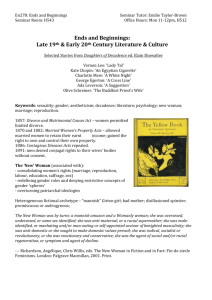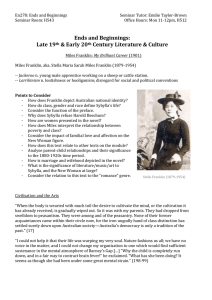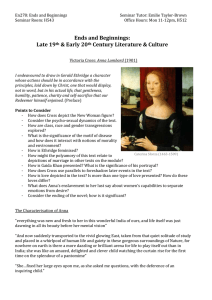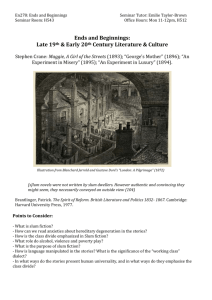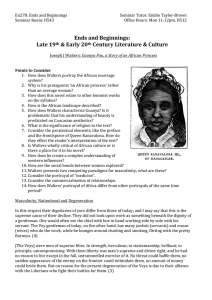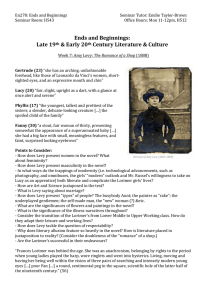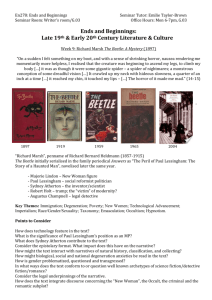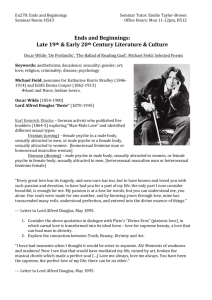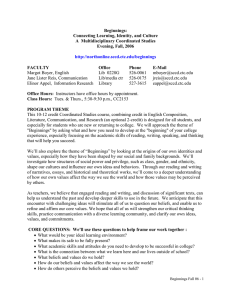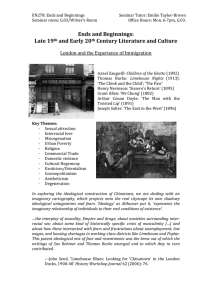En278: Ends and Beginnings Seminar Tutor: Emilie Taylor-Brown Seminar Room: H543
advertisement
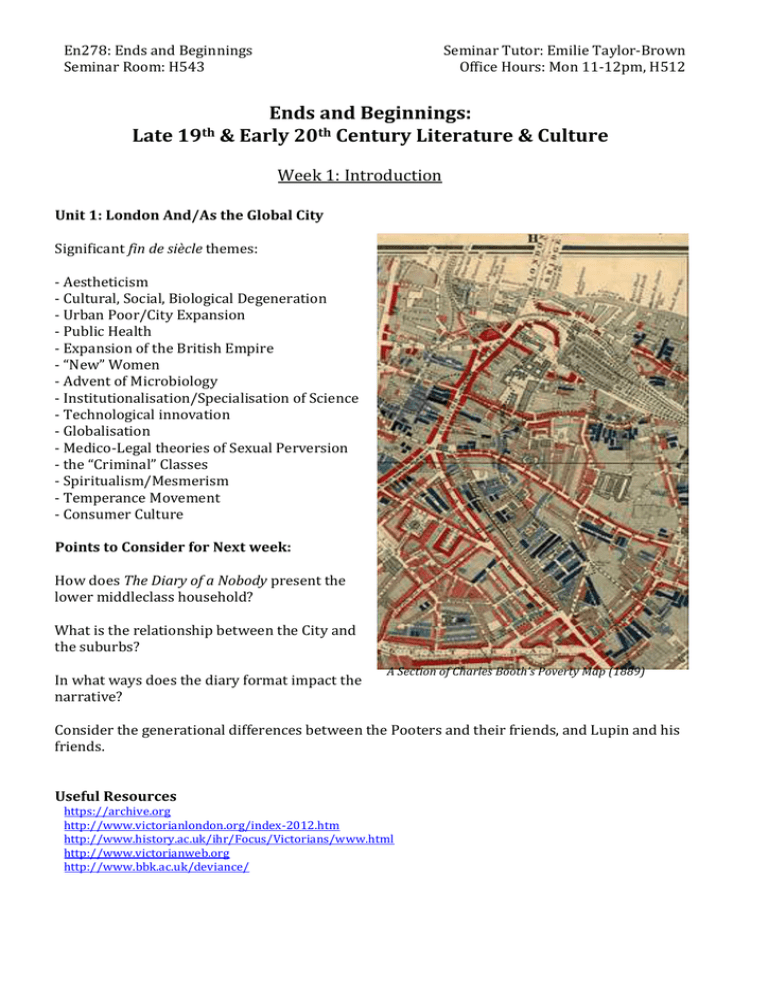
En278: Ends and Beginnings Seminar Room: H543 Seminar Tutor: Emilie Taylor-Brown Office Hours: Mon 11-12pm, H512 Ends and Beginnings: Late 19th & Early 20th Century Literature & Culture Week 1: Introduction Unit 1: London And/As the Global City Significant fin de siècle themes: - Aestheticism - Cultural, Social, Biological Degeneration - Urban Poor/City Expansion - Public Health - Expansion of the British Empire - “New” Women - Advent of Microbiology - Institutionalisation/Specialisation of Science - Technological innovation - Globalisation - Medico-Legal theories of Sexual Perversion - the “Criminal” Classes - Spiritualism/Mesmerism - Temperance Movement - Consumer Culture Points to Consider for Next week: How does The Diary of a Nobody present the lower middleclass household? What is the relationship between the City and the suburbs? In what ways does the diary format impact the narrative? A Section of Charles Booth’s Poverty Map (1889) Consider the generational differences between the Pooters and their friends, and Lupin and his friends. Useful Resources https://archive.org http://www.victorianlondon.org/index-2012.htm http://www.history.ac.uk/ihr/Focus/Victorians/www.html http://www.victorianweb.org http://www.bbk.ac.uk/deviance/ En278: Ends and Beginnings Seminar Room: H543 Seminar Tutor: Emilie Taylor-Brown Office Hours: Mon 11-12pm, H512 Close Reading Exercise India HERE from my lonely watchtower of the East An ancient race outworn I see— With dread, my own dear distant Country, lest The same fate fall on thee. Lo here the iron winter of curst caste Has made men into things that creep; The leprous beggars totter trembling past; The baser sultans sleep. Not for a thousand years has Freedom’s cry The stillness of this horror cleaved, But as of old the hopeless millions die, That yet have never lived. Man has no leisure, but to snatch and eat; Who should have been a god on earth; The lean ones cry; the fat ones curse and beat, And wealth but weakens worth. O Heaven, shall man rebelling never take From Fate what she denies, his bliss? Cannot that mind that made the engine make A nobler life than this? Madras, 1881.
